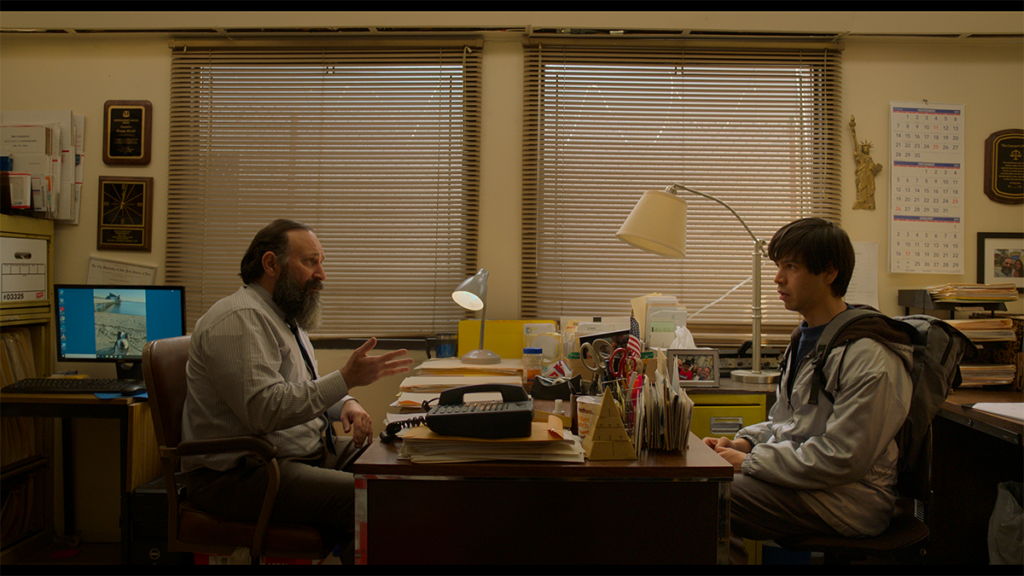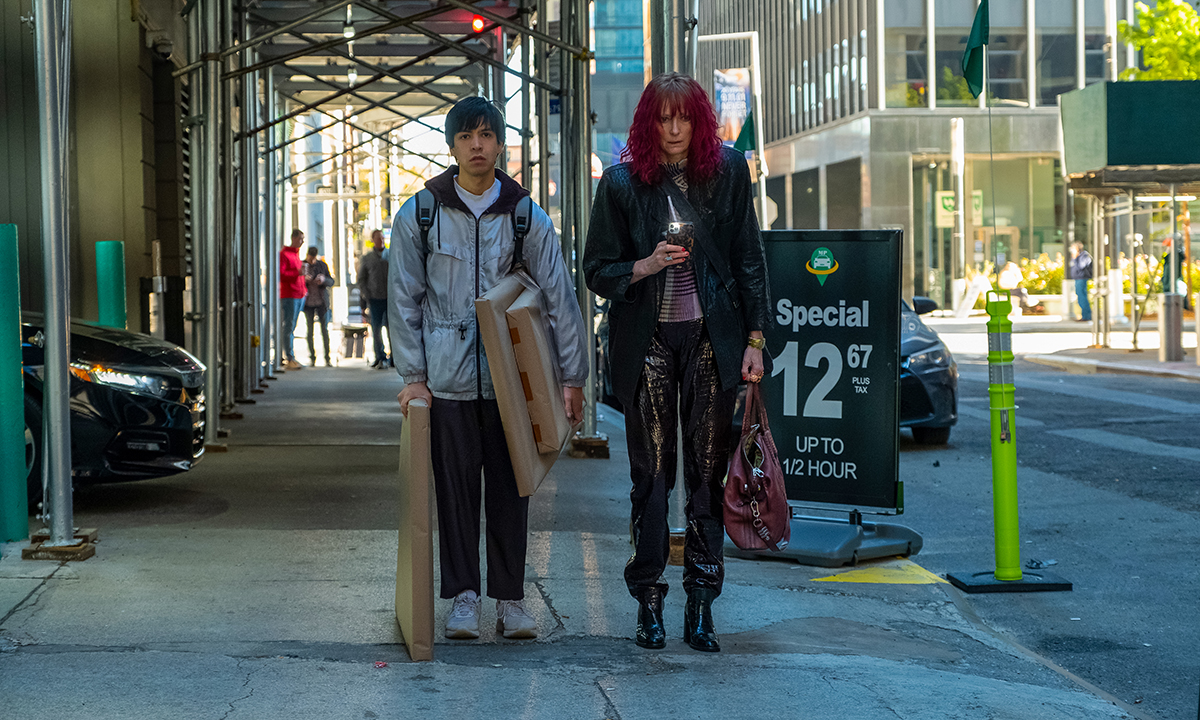In Julio Torres’ Problemista, his immigrant protagonist moves around New York City without a sound. His steps as he walks, or rather bounces, around a gallery or up the concrete steps of an apartment building are completely silent. He’s not there to make noise and despite the film’s name, he’s not there to cause any trouble.
The film is Torres’ directorial debut and tells the story of Alejandro, a young man from El Salvador who is struggling to find someone to sponsor his work visa. After getting fired from a cryogenic freezing facility, Alejandro meets a cruel and eccentric art critic named Elizabeth, played by Tilda Swinton, who dangles the promise of a work visa if he can help her put on a show for her cryogenically-frozen husband’s paintings of eggs.
For the almost 200,000 people who were given employment-based visas in 2023, the absurdities in Problemista and its depiction of the immigrant experience might be frustratingly accurate. Torres builds a maze out of filing cabinets and overhead lighting that is “impossible to navigate,” as the film’s narrator Isabella Rossellini reminds us. Alejandro can’t afford to apply for a visa but he also can’t work until he gets that visa. The key to open the final door is always behind another door.
The story is about this maze but it really hinges on one thing: money. What people call the American Dream becomes a never-ending budgetary nightmare. For Alejandro, that means scraping up enough cash, just for it to be wiped away in one crucial moment by overdraft fees. A few minutes later we see a message from his mom, back in El Salvador. She has sent him $40 to help overnight some CDs to Elizabeth. A drop in the bucket in terms of money, but a show of love, a reminder that someone is rooting for him so many miles away.
For Alejandro, it was the daunting negative balance on his card. For me, it was the mounting balance on my credit cards. I similarly lived in this maze for a year while I waited for a decision on my permanent residency application. Unlike Alejandro, I had found a company to sponsor my visa. But after working there for two and a half years, my work permit expired and my green card application stalled. I could no longer legally work in the United States so my employer put me on temporary unpaid leave. And I watched as my modest savings account emptied out.
About two months in, I was also over-drafting my checking account to pay for the car I had bought a few months earlier when my life was on track. I also had student loans from the master’s degree in journalism I had gotten to follow what now felt like a silly, inconvenient dream. In the months that followed, I maxed out three credit cards and USCIS denied my permanent residency.
After 21 years of living the States, I moved back to Mexico, where I watched Problemista. I was struck by the parallels in our experiences, particularly the subtle way the system clears a path for those with money or STEM degrees while building an impossible maze for those with more creative ambitions.

“Alejandro is choosing the hardest route,” Torres told Vogue. “And he could always say, ‘What am I doing? I’ll just go back home, be an English teacher, and have some sort of dignified life waiting there for me.’ But he doesn’t want that.”
Alejandro isn’t just an immigrant from El Salvador scraping together enough cash to get by in New York, but an aspiring toy-maker with dreams of bringing his quirky inventions to life. In one of the movie’s most climactic scenes, Elizabeth says the quiet part out loud: “You who adore difficulty. You cannot get enough of it. You seek it out on every corner,” she says. “Not Mexico City, not Montreal, not Berlin, nowhere easy to migrate to. And not a doctor. Not a software designer, nothing that anybody’s gleefully handing out visas for. No, an aspiring maker of toys.”
In reality, the conversation happens over the phone between her and Alejandro. But in his mind, they’re in a cave, her a monstrous dragon, he a medieval knight ready for battle.
Eventually, Alejandro makes his way to the elusive Hasbro offices to demand they hire him after they ripped off one of his toy designs: a cabbage patch doll with a phone that shows text from her frenemies. His final victory is when he instructs them to sponsor him. Tired from dealing with the red tape, he doesn’t even want to hear about it: “You’re just going to email me and tell me it’s done,” he tells the Hasbro employee. And so he ends Problemista triumphant, having conquered his immigrant foes.
If only it were that easy.

